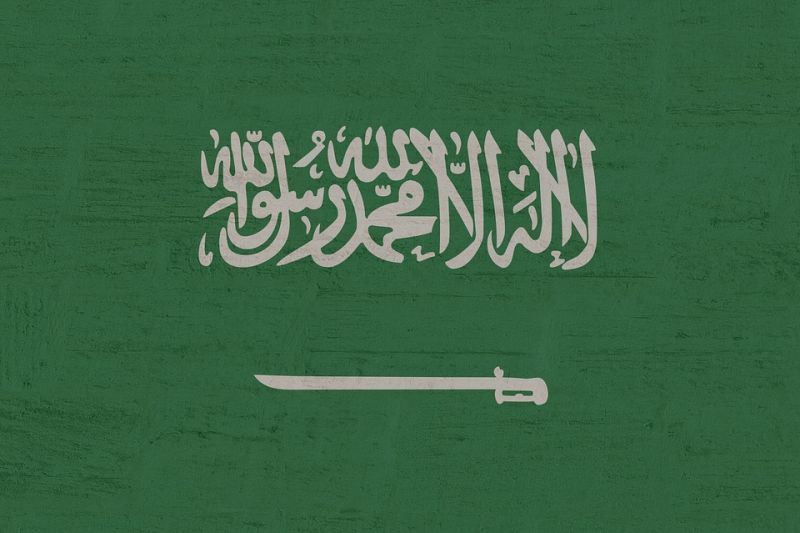Paris: Donald Trump claims he is being “very tough” with Saudi Arabia and Britain has warned of “serious consequences”. But besides demanding the truth about the disappearance of journalist Jamal Khashoggi, the West is likely to continue doing business as usual with the Gulf kingdom, experts say.
Khashoggi, a Washington Post columnist who had been living in self-imposed exile in the US since late 2017, vanished on October 2 after entering the Saudi consulate in Istanbul to get paperwork for his upcoming wedding.
Turkish government sources say the 59-year-old writer, who was critical of some of the policies of Saudi Crown Prince Mohammed bin Salman, was tortured and murdered there — a claim Riyadh denies.
The high-profile case has drawn attention to the large-scale crackdown on dissenters in Saudi Arabia, which was largely swept under the rug when its new 33-year-old strongman toured the US and Europe earlier this year.
Trump and other Western leaders, who feted the prince for giving women the right to drive among other social freedoms, have reacted cautiously to the murder claims.
“There might be some pressure from behind closed doors on MBS (the prince’s nickname) to not embarrass his Western allies because Western allies don’t want to be seen as being in bed with dictators,” Madawi Al-Rasheed, a Saudi-born professor at the London School of Economics, told AFP.
“But whether Western governments will reconsider their relations to the extent of having a break with Saudi Arabia, I very much doubt it,” she added.
– ‘We don’t like it’ –
The ultra-conservative kingdom — the world’s biggest oil exporter — has traditionally received only sparing criticism from Western governments, which see it as a key Middle Eastern ally on security, intelligence gathering and trade.
For the US particularly, the Sunni power also acts as a vital counterweight to Shiite rival Iran.
After several days’ silence, Trump, who visited Saudi Arabia on his first visit abroad as president in May 2017, this week demanded answers about Khashoggi’s disappearance.
“We are very disappointed to see what’s going on. We don’t like it and we’re going to get to the bottom of it,” he said.
But the “America First” leader — who is campaigning in November mid-term elections — was also quick to rule out limiting arms sales to the biggest buyer of US weapons.
Responding to calls by several Republican and Democratic senators to use US weapons for leverage with Riyadh, Trump warned that the Saudis would just “take that money and spend it in Russia or China or someplace else.”
“That would not be acceptable,” he declared, estimating the loss to the US at $110 billion in defence spending.
French President Emmanuel Macron, who hosted Prince Mohammed at a private dinner at the Louvre in April, was even slower to react to the allegations, prompting criticism over his approach to a country which France has heavily courted for arms contracts.
On Friday, Macron broke his silence to describe the case as “very serious” and call on the investigation underway in Turkey to provide the “truth and complete clarity”.
– The Canada precedent –
Some of the strongest reaction of the former British protectorate came from London, where Foreign Secretary Jeremy Hunt told AFP that Khashoggi’s fate could have “serious consequences”.
But Western governments, while likely engaging in behind-the-scenes efforts to rein in the prince’s authoritarian tendencies, are unlikely to jeopardise ties with the Saudi monarchy, according to Al-Rasheed.
“There might be noise to please their constituency because this is about freedom of speech, security and the rule of law… But I think they will still have the red carpet out for him (MBS),” she predicted.
Camille Lons, a specialist on the Gulf at the European Council on Foreign Relations, pointed to the fury unleashed by Saudi Arabia against Canada recently when Ottawa criticised its rights record.
Riyadh expelled the Canadian ambassador and severed all trade and investment ties with the country.
“As we saw with Canada it’s a country whose reactions are difficult to foresee because MBS is unpredictable,” Lons said.
The allegations that a 15-man Saudi team flew to Istanbul to either capture or kill Khashoggi could nonetheless “damage the confidence of Western powers” about its commitment to reforms, Sarah Bollinger, a Jordan-based analyst of Middle Eastern affairs, said.
Western business leaders have already begun reviewing their Saudi connections.
On Friday, British billionaire Richard Branson announced that he was suspending his involvement in a major Saudi real estate project, saying Khashoggi’s disappearance had tested “the ability of any of us in the West to do business with the Saudi government.”
The case also looked set to overshadow a high-profile investment conference set to take place in Riyadh from October 23 to 25.
Several US business figures and journalists have already pulled out of the forum.
[source_without_link]Agence France-Presse[/source_without_link]

